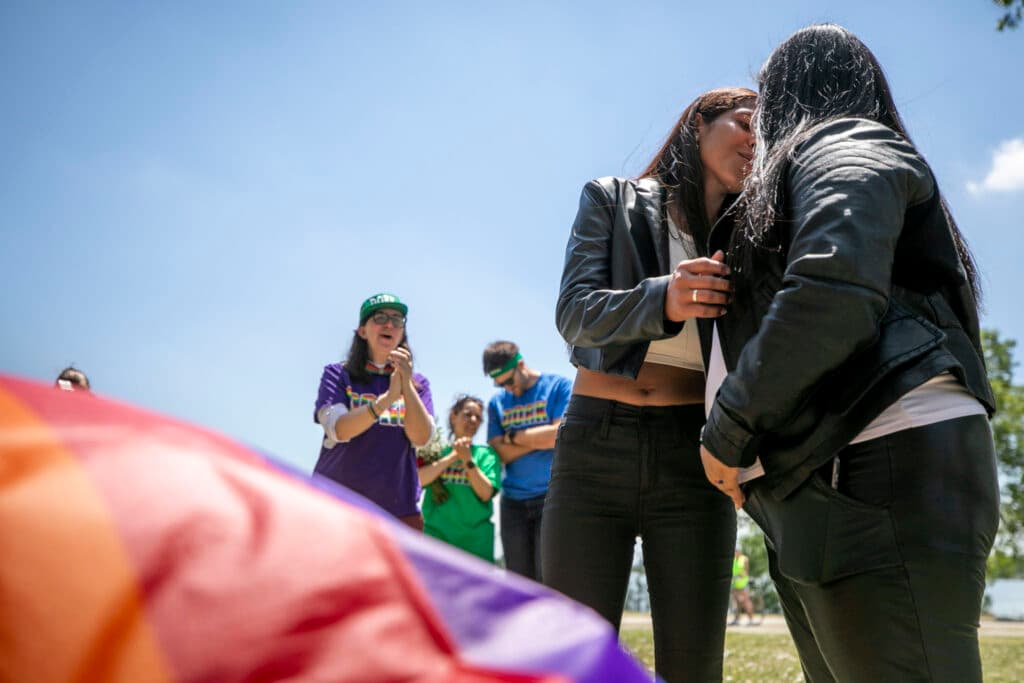Amarilis Marte and Mariangy Delgado Gutierrez got married earlier this month by Sloan’s Lake, in front of cameras, reporters, supporters and their two daughters.
Marte and Delgado Gutierrez's home country of Venezuela prohibited them from marrying, but the United States afforded them more liberty, Marte said, and she was grateful their family was recognized by this country.
“There are many struggles we have ahead of us, and we’ve gone through many already,” Marte told Denverite in Spanish. “Through this marriage, we are more united than ever. The girls were there, and they were super happy, because they know that we’ll go forward together.”

The ceremony was organized by Dork Dancing, a mental health advocacy nonprofit that had been working to support the family through housing and mental health struggles. The group, itself strapped for money, helped pay for the family’s rent and phone service. It offered bedding, hygiene products, and medical care. And it’s looking for grant money to do more direct support for immigrant families.
The wedding made headlines in Westword and the national LGBTQ magazine The Advocate. The wedding showed a visiting Philadelphia Inquirer reporter the “true meaning of Pride” and gave her “faith in humanity.”
After the ceremony, a local activist offered an apartment in her house to the family where they could honeymoon. There, the couple and their kids snuggled, watched TV, and took a week off from the apartment they shared with eight men who the family says aren’t exactly the family’s ideal roommates.
The wedding and honeymoon were a happy stop on a dangerous journey that is far from over.
Marte and Delgado Gutierrez risked everything for stability for themselves and their children. They’ve faced kidnapping, bribes, separation, contaminated water, hunger, strict immigration policies and homelessness to get to where they are.
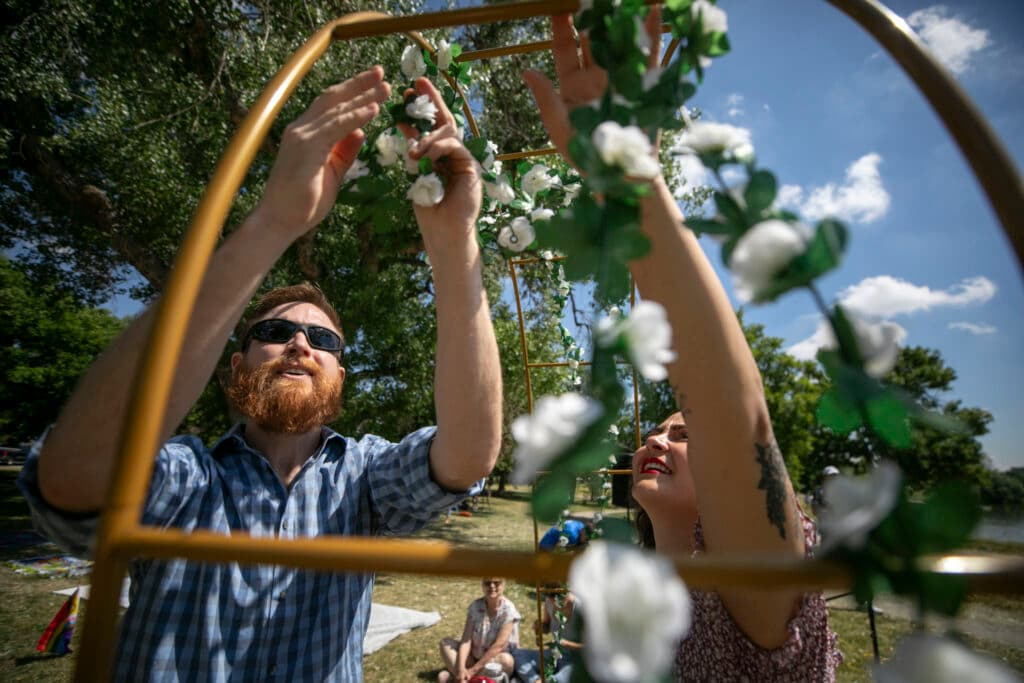
This weekend, they’ll be celebrated again at Denver Pride as part of Dork Dancing’s contingent in the parade.
“Most of us don't speak Spanish or speak very little Spanish, and they're still learning English, so with that barrier, it can be difficult,” said Susan Law, one of the Dork Dancing organizers. “But as soon as we put on some music and start dancing, all of that disappears, and we are very much connected and laughing and having a good time.”
Though Marte and Delgado Gutierrez are grateful for the community that celebrates their marriage, the couple still hasn’t found the stability they yearn for.
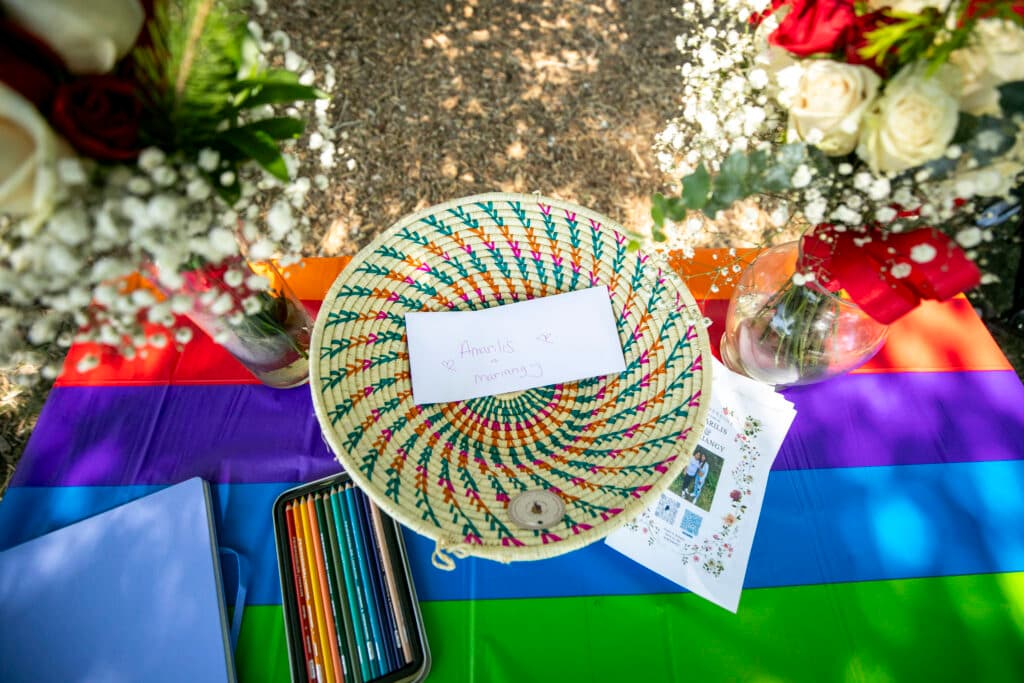
Many factors pushed the couple to leave Venezuela: domestic violence, homophobia, a lack of educational opportunities for the children, and a desire to make enough money to survive.
Being a lesbian is frowned upon in their home country, where marriage is restricted to people of opposite sexes and religious prohibitions against same-sex desire dominate the culture.
Old friends, Marte was 19 and Delgado Gutierrez was 27 when they decided to be together. The decision was a costly one, and they lost nearly everything: their home, their belongings, and some family connections.
The two traveled between Venezuela and Colombia, struggling to build a better life for Delgado Gutierrez’s children and to escape the abuse of the girls’ father, who the couple said had threatened to kill the couple.
While some family members supported their relationship, many did not. Living far from relatives felt safest, and making a decent living in Venezuela was nearly impossible.
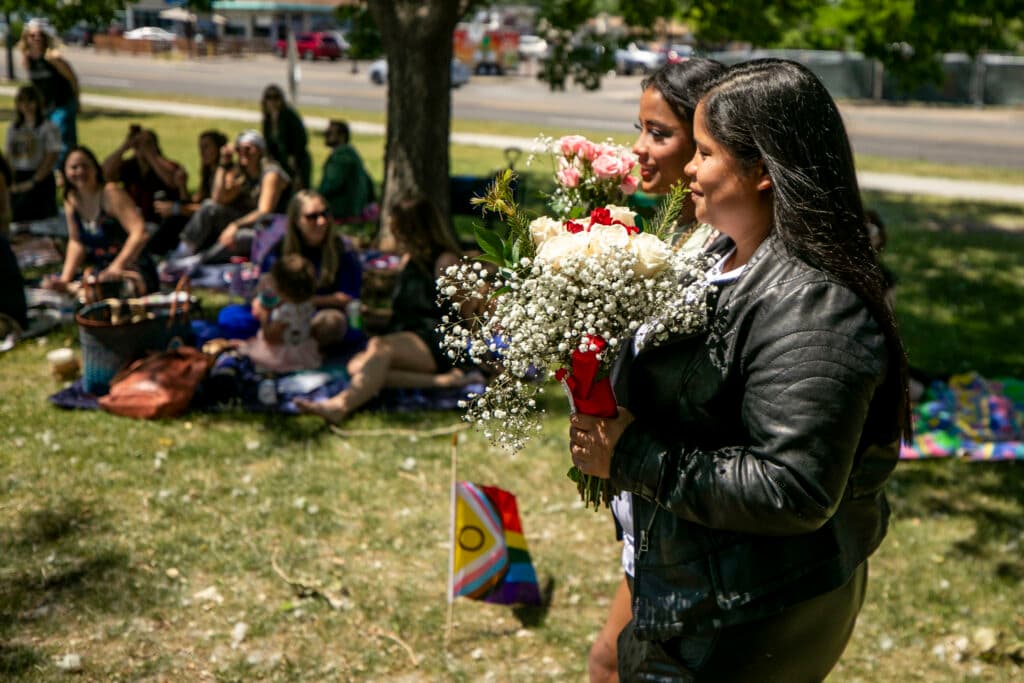
Eventually the pair returned to Venezuela and ultimately decided to flee the country with their children to the United States. Border agents nearly refused to let them leave Venezuela without the children’s father’s permission, but the couple convinced the agent they were a family, and he let them go.
That was the beginning of a four-month-long journey toward what they hoped would be greater freedom and stability.
They made a 60-some-mile trek through the Darién Gap, a jungle explorers once said was unnavigable. There they encountered death and wild animals, dehydration and hunger.
The couple’s children only ate what they could find in the trash. And the parents left those scraps to them. The only water they could drink, from rivers, was contaminated, and they fell ill. They walked and walked and walked anyway.
“It was terrible,” Marte said.
They arrived in Panama, where they were kidnapped with other immigrants, held in a shed and told they could not leave until they paid a ransom.
They had sold their phones for money, but still lacked what they needed to get away.
Their hunger pangs worsened. The smell was horrible.
A woman with a humanitarian organization saw Delgado Gutierrez crying and offered to help the family. Eventually, they were allowed to leave.
As they traveled, the couple purchased a pack of lollipops with the little money they had and began to sell them on the streets to make money for the rest of their journey toward Mexico and the United States.
In late October, they crossed the border from Piedras Negras, Mexico, to Texas and were sent to Denver, where they stayed in a shelter.
Arriving here felt like a success, even if they didn’t have the right to work.
The couple sold arepas, cleaned patios and worked in gardens. They did what they could for people who wanted to support them.
After the shelters began to kick out families, the couple briefly lived on the streets before moving into an apartment with eight men. It wasn’t ideal, but it was indoors and safer than living outside or in a homeless shelter.
Marte and Delgado Gutierrez’s goals are simple, yet hard to achieve without work authorization.
“I want to save money with a good job so that I can buy my own home,” said Delgado Gutierrez. “I see a future in the United States, because we’ve had so much support. But to have a future, I want to have a home. We have to have this so our children can be stable, too.”
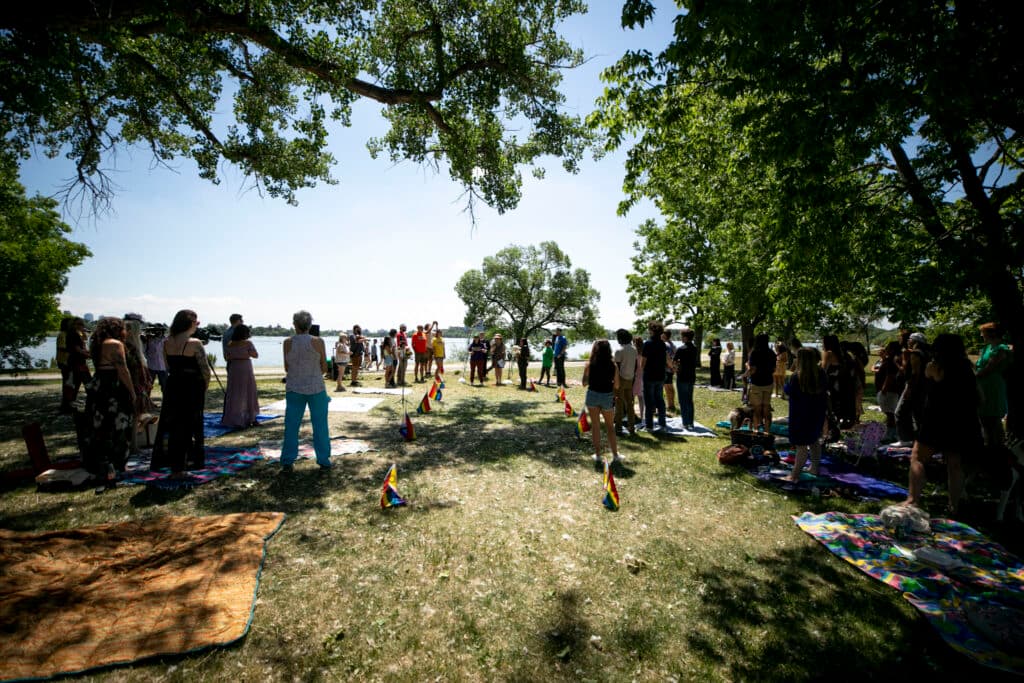
Happy moments like their wedding, their honeymoon and Pride are fleeting for the couple, living through an otherwise brutal chapter of their lives.
It’s a time where hoping for something better than abuse, housing insecurity, legal tangles, poverty and the looming threat of deportation for themselves and their children is often all they have to keep it together.
Ultimately, they hope the United States immigration system, a system where deportation is a common outcome, will allow them to work and become permanent residents.
They have no immigration lawyer, and without one, their chance of making their way through courts without being deported is grim. Even for those with an attorney, it’s an uphill fight.
Already, they have been bumped around through the courts and their hearing dates have been postponed for months at a time, leaving the couple in limbo. Their cases likely won’t be decided for years.
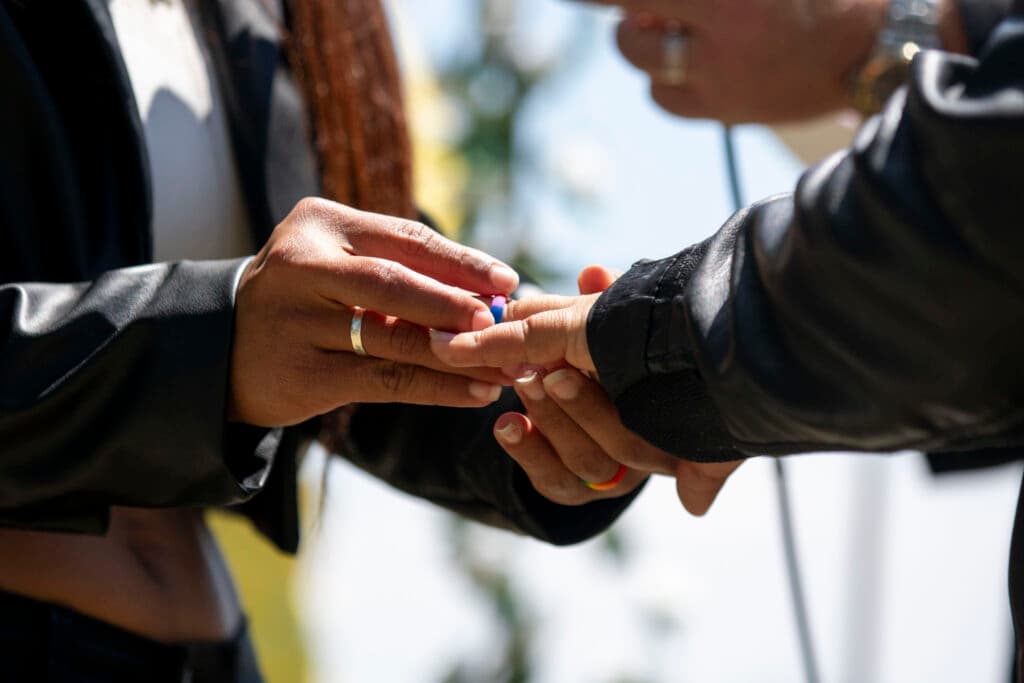
Meanwhile, every step of their lives without work authorization is a challenge.
The food here, influenced by Mexican cuisine, is spicier than what their palates are used to. They speak no English, though they plan to learn. Their daughters attend two separate schools, and while some kids are kind enough, many are less so.
Though there are times they’ve felt like giving up, they keep going, they keep dancing, they keep holding their family tight.
They’ve traveled this far, and they see no reason to turn back now. A better future, they hope, is coming.
“I continue to be strong,” said Delgado Gutierrez. “I continue to fight.”
